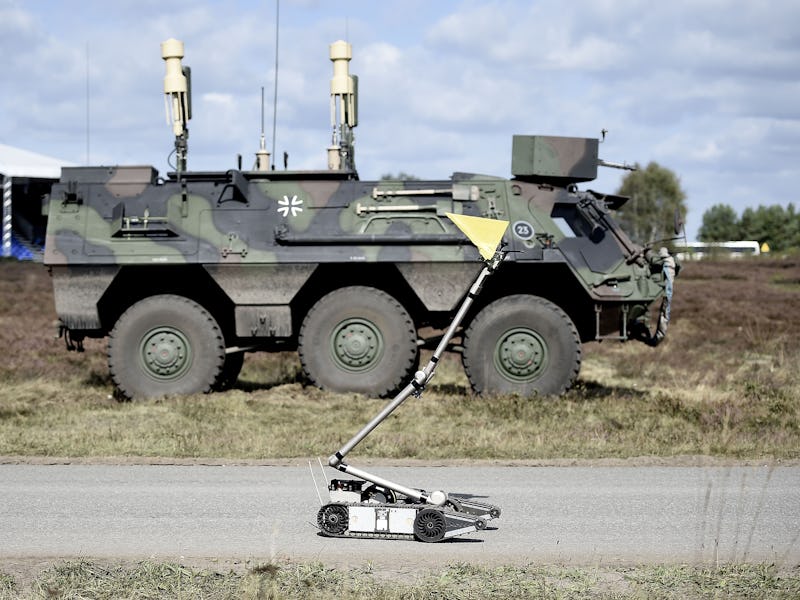Autonomous Robots and Military A.I. Won't Fight Wars Alone, Pentagon says
The Pentagon is working on human-machine military collaboration.

Imagine a future where autonomous robots rule the battlefield. Wheeled, weaponized, and deadly, the military robots of the future could quickly make decisions on whom (or what) to destroy based on deep learning and complex algorithms.
It’s a scene straight out of the movies, and one that the U.S. military is working on making a reality. There’s just one caveat: For the most part, autonomous robots will not be fighting on their own, Robert Work, the deputy secretary of defense and the Pentagon’s second in command, said in an exclusive interview with the Financial Times.
“Our vision of our battle network is where the human will always be the one who makes the final decision on legal action,” Work told FT, “with the possible exception of some defensive capabilities.”
Instead of developing the tools for all-out autonomous warfare, the military will focus on developing A.I. to help soldiers in a human-machine collaboration.
Autonomous technology will be included in military lineups of the future.
How autonomy could help soldiers
The military is primarily looking for ways that autonomy can speed up battlefield decisions. Work told the FT that the Pentagon still envisions humans making the majority of the final decisions. What autonomous machines will do is take in loads of data, process that data, and then help human military members make a decision.
A scenario that Work mentioned where technology could have helped was the “little green men problem” during the Ukrainian crisis. Sifting through social media could give early warnings in similar cases in the future and identify small movements of troops and weapons.
Physical manifestations of autonomy are either in the works or already being tested.
The Defense Advanced Research Projects Agency (DARPA) recently contracted eight organizations to create a disruptive vehicle with semi- and fully autonomous features. The autonomy could help soldiers stay safe by moving them out of the way and repositioning armor during an attack.
DARPA also recently tested an autonomous boat that hunts submarines.
Why the Pentagon is focusing on a human-machine collaboration
Work told the FT that there is one application for which completely autonomous machines could be used: defense.
This includes automatic missile response programs and automatic cyber attack response programs. Last December, Work said that China and Russia’s A.I. development motivated the United States to develop its own technology.
A DARPA concept vehicle with autonomy.
“We need to up our strategic game in an era of great power competition,” Work said.
Still, the Pentagon isn’t looking to create anything that would be able to rewrite its own code. Development will focus more on technology that aids a human in making a faster, better decision. Even if it’s just for defense, though, handing over weapons to an autonomous military isn’t something many people — including Elon Musk, Stephen Hawking, and other tech geniuses — approve of.
The human-machine collaboration is the best choice for the military if the country wants to avoid any Terminator-esque world wars — at least until humans develop a way to program respectable ethics into autonomous killing machines.